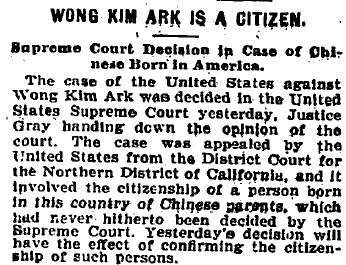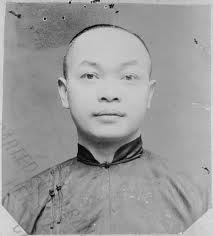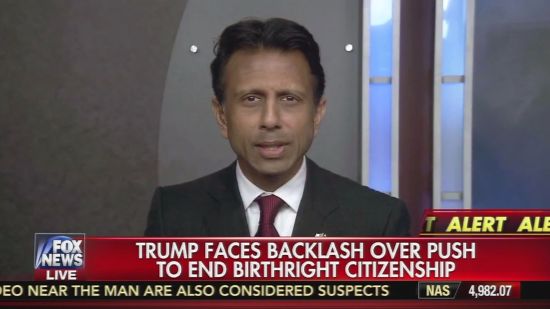Asian Americans voters are America’s fastest growing population of voters, growing from 1.6% of registered voters in 1996 to 3.4% in 2012. Not only are we a sizable share of the electorate but we often cast our ballots as a unified voting bloc: in 2008 and 2012, nearly three quarters of voters cast their ballot for President Barack Obama in the general election, and in many states, Asian American votes might well have swung the election outcome.
Despite the Asian American community’s strong turnout for a Democratic candidate in the last two general presidential elections, the Asian American electorate is also unique in that it remains uncommitted to either of this country’s two major political parties. In California, for example, one fifth of Asian American voters describe themselves as politically unaffiliated despite their typically left-leaning politics, and in Texas, Asian American voters are equally divided between Democrats, Republicans, and unaffiliated voters. These electorate characteristics have led many politicos to speculate that the Asian American vote may be a “persuadable” electorate, amenable to being wooed and won by either party.

For Republicans, the need to invite new, loyal voters into the GOP base is particularly dire. Republican voters are traditionally older, White, Christian voters from the South: all populations whose numbers are declining in recent years. As America increasingly becomes a plural multicultural society, traditionally Republican voters are getting crowded out. Political analysts agree: the Republican Party needs an infusion of new voters in order to survive.
In recent years, the Republican leadership has appeared to acknowledge it has a problem, and has targeted the Asian American community to sustain necessary growth as a result. In state and local elections, Republicans have quietly backed a number of Rightwing Asian American candidates; most notably, they helped propel Rhode Island’s Allan Fung to an Election Night victory last year to become the only current sitting Chinese American state governor. Republicans also launched the much lampooned Asian Republican Coalition, an effort to attract Asian American voters and donors despite being a committee staffed predominantly by White businessmen.
Now, however, several of the Republican Party’s candidates for the presidential nomination threaten to undo the Party’s efforts to make inroads with Asian voters. Last week, Donald Trump began arguing in earnest that it was time for America to do away with birthright citizenship: citizenship automatically awarded to any child born on American soil. Trump proposed last weekend to alter the Fourteenth Amendment — the Amendment granting equal protection to all citizens — calling it, “the country’s biggest magnet for illegal immigration“.
Alarmingly, several other Republican candidates have joined Trump in his attack on the Fourteenth Amendment and birthright citizenship, including Rick Santorum, Scott Walker, Ben Carson, Lindsey Graham, and Bobby Jindal. Others such as Rand Paul and Chris Christie argue that the Fourteenth Amendment simply does not automatically grant birthright citizenship, a position that numerous legal scholars agree is dubious. Jeb Bush — who has thus far remained steadfast in his defense of the Fourteenth Amendment — was recently recorded expressing disdain for “Asian people coming into our country… taking advantage of birthright citizenship”. Jindal’s opposition to birthright citizenship is particularly bizarre since his own citizenship was acquired through the country’s birthright citizenship standard: Jindal’s immigrant parents were pregnant with him when they arrived in the United States, and were not naturalized at the time of his birth.
America was first established on the notion that all men might be free — from social, political, and economic restrictions — to pursue their own dreams; yet, the original founding of the country failed to remove political and legal restrictions on the freedoms of women and people of colour. With regard to citizenship, full status was only granted to Whites: neither Black slaves, nor Asian or Latino migrants, nor Native peoples, nor the descendants of any of these groups, were permitted to acquire citizenship through naturalization, lineage, or birthright.
In 1858, Dred Scott — a Black man born into slavery who attempted to sue for his freedom — was ruled against in the Supreme Court in part because the justices stated that Blacks were not citizens of the United States. This prompted nationwide outcry leading eventually to the passage of the Fourteenth Amendment, which declared in its first clause that “all persons born or naturalized in the United States, and subject to the jurisdiction thereof, are citizens of the United States and of the State wherein they reside,” thereby reversing the Dred Scott decision and granting citizenship to all domestic-born Americans regardless of race. As I wrote in 2010, it is no concidence that birthright citizenship is included in the same Amendment that established political equality for people of colour: one cannot stand in this country without the other.
Although the wording of the Fourteenth Amendment appears uncontroversial, the standard of birthright citizenship remained nonetheless uncertain for people of colour for decades after the Amendment’s passage. The courts awaited a case by which legal precedence for the interpretation of the Amendment might be established.
That case was finally brought by Wong Kim Ark, a California-born Chinese American born to Chinese parents who had legally immigrated to San Francisco. Ark was a United States citizen by birth, but when he traveled overseas as an adult, he was denied re-entry to America based on the Chinese Exclusion Act, which excluded entry of virtually any Chinese person into the country based entirely on our race. Ark sued for his re-entry on the basis of his citizenship status, which he argued was granted to him by his birth on American soil according to the Fourteenth Amendment. When the Supreme Court agreed with him in 1898, they established that the Fourteenth Amendment should be interpreted as granting birthright citizenship to all domestic-born children. That interpretation continues to stand as basic legal dogma in the United States.
To view the history of the citizenship question in America is to view a battle between two warring parties: Whites who would create laws to stymy an increasingly multicultural America, and those who have fought tirelessly to dismantle those “Whites only” restrictions through such standards as birthright citizenship. For many Asian Americans, most of whom are immigrants or the descendants of immigrants, birthright citizenship is not just a mechanism whereby our families have entered into and remained in this country. Birthright citizenship is also part of our political legacy: something we helped fight for and win for all future Americans.

The fight to institute birthright citizenship fundamentally changed America. The struggle to establish a standard of citizenship that might be available to non-White people was one of the first steps undertaken in our ongoing journey to create the more perfect union, imagined but not yet realized at this nation’s founding. Birthright citizenship exists in recognition that America is not just a land of opportunity for free Whites; but one for all people regardless of race, colour, or creed. Conversely, an attack on birthright citizenship is an attack on all the people in America whose citizenship would have been denied at this nation’s founding and whose current status is thanks in part to the birthright citizenship standard. An attack on birthright citizenship is an attack on the validity of all non-White American citizens. For Asian Americans, an attack on birthright citizenship is an attack on us and our history.
Trump and company argue that their calls to end birthright citizenship is part of a desire to curtail illegal immigration. Here, Asian American voters must stand in solidarity with Latino voters against this nativist, anti-immigrant xenophobia. It goes without saying that we have a moral obligation to stand in defense of fellow people of colour against any and all racist rhetoric, whether we are the direct target or not. But, in addition, although the vast majority of undocumented immigrants originate from parts of Mexico and South America, Asians are the second largest — and fastest growing — population of undocumented immigrants. When Republican presidential candidates speak out against “illegals”, they are talking in part about us. When Republicans pass laws that draw on racist fears of immigrant populations, they also stoke anti-Asian fires. This has always been — and continues to be — our fight, too.
It is truly baffling to me that Republicans can on the one hand acknowledge the need to appeal to Asian American voters, and on the other hand tolerate the kind of unabashed anti-Asian (as well as anti-Black and anti-Brown) bashing represented by the reinvigorated debate over birthright citizenship. They need our numbers, but how can they invite us into their tent while asking that we forgive this base assault on us and our allies? I say the best remedy for this thinly veiled racism is for Asian American voters to remind Republicans that we are — by virtue of the Fourteenth Amendment and by virtue of the Wong Kim Ark case — American citizens. We are here. We belong here. We aren’t going anywhere.
Oh, and by the way, we have a vote, too. And, we shouldn’t use it to support any party that would expend a week’s worth of news cycles debating the authenticity of our very existence in this country.

